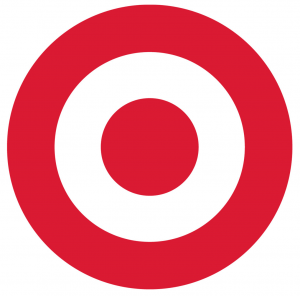How Target Differentiates Itself From Walmart
 Walmart vs. Target. Two of the largest retailers in America competing for consumer attention and share of wallet.
Walmart vs. Target. Two of the largest retailers in America competing for consumer attention and share of wallet.
Some might argue there is no contest here as Walmart (#1 on the Fortune-500 list) generates more than 6 times the revenue of Target ($469 billion vs. $73 billion). But somebody has to be #2, and it happens to be Target.
At #36 on the Fortune-500 list, Target is not a small company. But if size matters, Target has a long way to go to catch up to Walmart.
So how does Target compete against “Walmart-the-giant”?
The secret can be found in their values.
A Comparison of Values
Most organizations talk about values. Walmart refers to their values as “beliefs”. While there is a direct correlation between beliefs and values, it’s hard to tell people what they should believe. I would also argue that organizations do not have beliefs. People do.
In spite of the different terminology, here is a comparison of Walmart’s 4 beliefs and Target’s 6 values.
Comparing these values against the stated values of other Fortune-500 companies, here’s my take on them.
- Walmart’s list of beliefs – Service, Respect, Excellence, and Integrity – are all Fundamental Values. These are common to most other Fortune-500 companies. Nothing here defines what makes the company unique or different…. or maybe it’s just the company’s single focus on offering low prices, as they so proudly state in their tagline: “Save money.” Frankly, I’m surprised Walmart doesn’t state “Economical” as a core value.
- One of Target’s values – More for your money – aligns directly with Walmart’s focus on “Save money.” It means both Target and Walmart are in the discount retail business, and Walmart clearly owns this space. So this is not a differentiating value for Target.
- Three other values at Target – Service, Diversity, and Community (giving back) – are similarly just Fundamental Values, the same shared by most other companies.
- The remaining two values at Target – Design and Fun – appear to be differentiating values. Not many large companies embrace these values.
In other words, Target’s competitive advantage lies in the two values of design and fun.
Defining the Value of Design
While design is not a value that I included in my list of 423 differentiating values (though I do include Fashion) it’s a terrific value, especially in the retail industry.
Here’s how Target defines the value of design:
It’s our belief that great design is fun, energetic, surprising and smart—and it should be accessible and affordable for everyone. When we talk about our dedication to good design, we don’t just mean how something looks, but also how it satisfies a need, how it simplifies your life, and how it makes you feel.
What a great definition. It includes 6 important attributes: fun, energetic, surprising, smart, accessible, and affordable. It also clearly highlights 4 expected outcomes. It must
- look good
- satisfy a need
- simplify your life
- make you feel good
It’s brilliant, as shown in this TV commercial promoting the new Peter Pilotto designs now available at Target.
Hopefully Target has implemented a reward system to encourage their 361,000 employees to embrace the value of design and show how Target is different from their competitors, particularly Walmart.
A Culture of Fun
It’s no surprise that the first attribute of design is fun. But then Target takes this to a deeper level: they integrate the value of fun into their organizational culture.
Here’s how Target defines the value of fun in the context of teamwork:
Our team is our greatest asset, so we invest in the growth and development of all team members, and have fun in all we do. And we’re committed to building a team that does the right thing for our communities, our shareholders and, above all, our guests.
So is it fun to work at Target?
There are likely other companies that can claim having more fun than working at Target. However, in my personal experience, the employees at Target have a whole lot more fun than the employees working at Walmart! This is an important distinction.
In other words, the value of fun at work is relative.
As long as Target can maintain an environment that is more fun than working at Walmart, they win. It also means customers likely have a more enjoyable shopping experience at Target than Walmart. And that’s the ultimate win.
Do you believe the values of design and fun are a competitive advantage for Target?
————————-
Note: This post ignores the recent controversy around the data breach of credit and debit card information at Target. Such a data breach is not unique to just Target, not is it relevant to this values analysis. However, if Target chooses to include security as an additional core value in the future, then it would be included in a values analysis.
————————-
Today’s value was selected from the “Fun-Recreation” category, based on the e-book Developing Your Differentiating Values.








